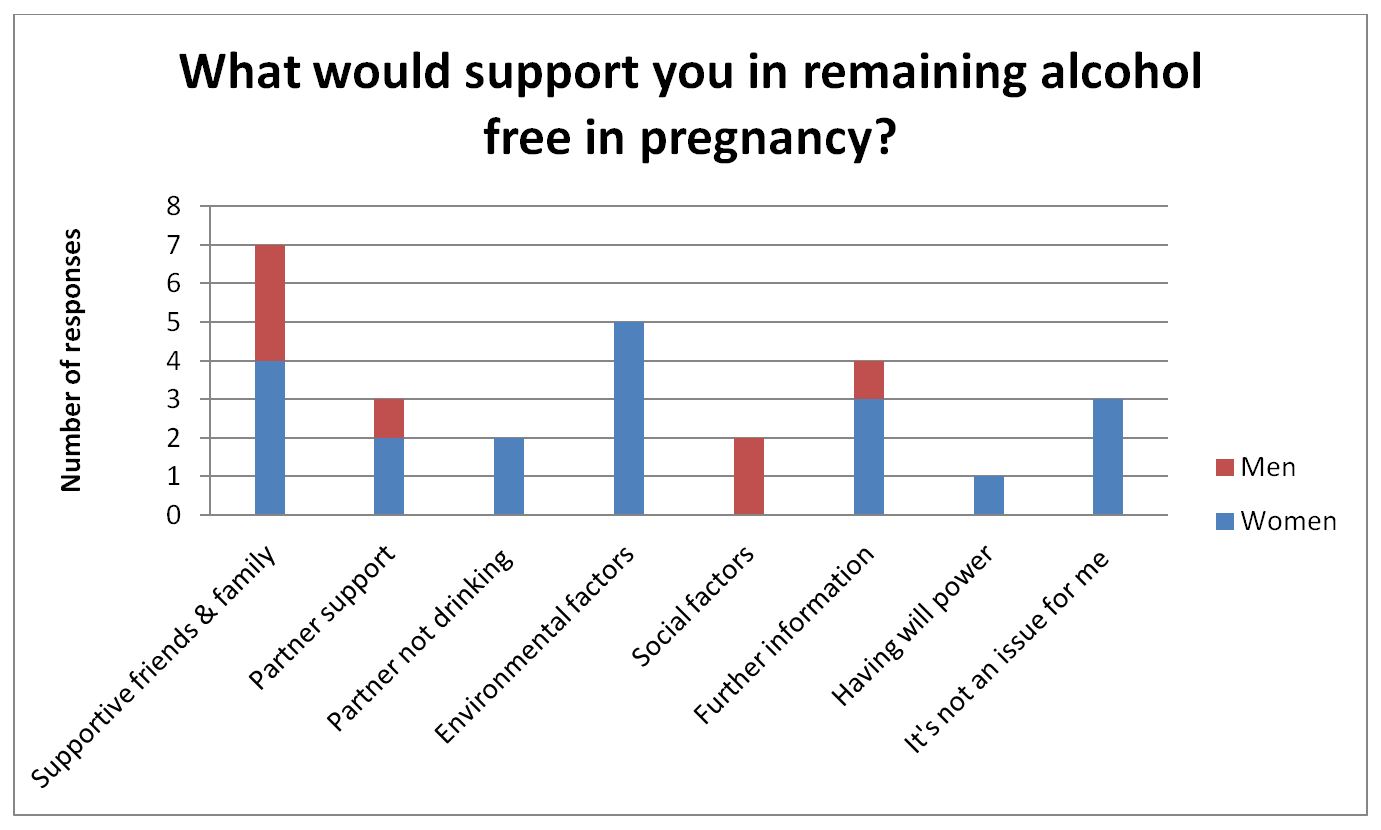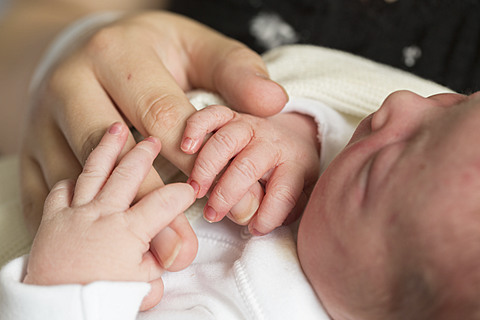If you’re wondering ‘what is FASD?’ you’re not alone. Recently, we asked 36 mums and dads to be ‘What you do you know about Fetal Alcohol Spectrum Disorder (FASD)?’. Here’s how they responded:
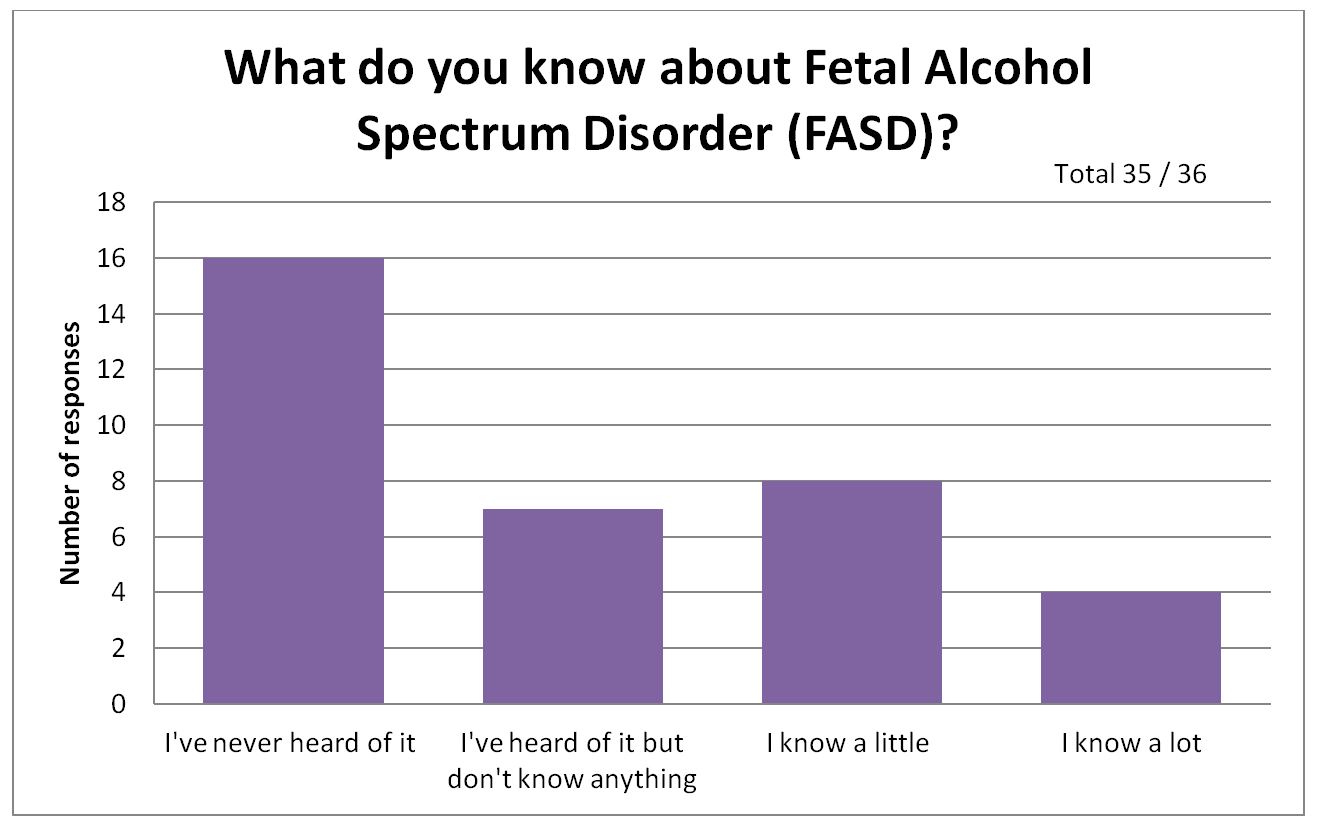
As you can see, the most common response was that people hadn’t heard of it. So let’s start at the beginning.
What is FASD?
Fetal Alcohol Spectrum Disorder (FASD) is a lifelong disorder. Alcohol can cross the placenta and interfere with normal development.
FASD is an umbrella term for a spectrum of conditions; some children may only develop mild symptoms while others may be severely affected.
Fetal Alcohol Syndrome (FAS) is the most severe condition in the spectrum, and the only form that can be recognised visibly.
A person with FASD is more prone to illness, physical and mental health problems, and learning and behavioural disorders. Because of their problems, they may become expelled from school, develop problematic use of drugs and alcohol, develop mental health problems, and find it difficult to get a job and live independently as adults.
FASD is Scotland’s most common, but often invisible, brain-damaging birth defect. There are an estimated 375 children and young people with FASD in the Highlands.
How can FASD be prevented?
FASD has a known, preventable cause. It is completely avoidable if no alcohol is consumed in pregnancy.
Chief Medical Officer guidance advises that if you are pregnant or planning a pregnancy, the safest approach is not to drink alcohol at all. No alcohol means no risk to baby. Not drinking alcohol in pregnant also reduces the risks of other complications such as miscarriage, stillbirth and SIDS.
The risk of harm to the baby is likely to be low if you have drunk only small amounts of alcohol before you knew you were pregnant or during pregnancy.
If you find out you are pregnant after you have drunk alcohol during early pregnancy, you should avoid further drinking. You should be aware that it is unlikely in most cases that your baby has been affected. If you are worried about alcohol use during pregnancy, talk to your doctor or midwife.
How is FASD diagnosed?
If children with FASD are not diagnosed early and given the support they need, they are likely to face a range of issues in later life. In January this year, SIGN clinical guidance for children and young people exposed prenatally to alcohol was published in Scotland. The physical and neurodevelopmental diagnostic criteria are described within, highlighting the importance of recording of alcohol history.
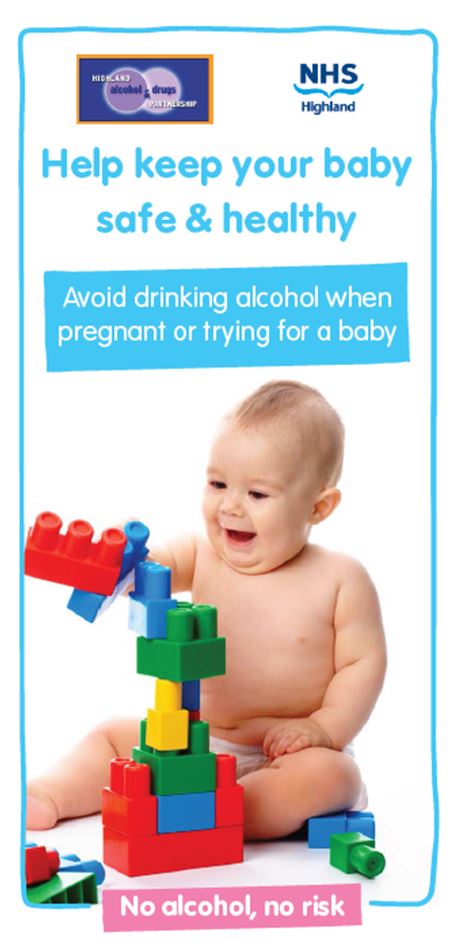
Where can I find out more?
Professionals
You can access Alcohol Brief Intervention (ABI) training. Check out the Health Improvement training prospectus and calendar for Alcohol Brief Intervention training, or access the learn pro ABI module. Alternatively contact us for training for your team.
Order the FASD leaflet. It’s on the Highland Information Trail.
Pregnant Women
Ready Steady Baby has lots of information about alcohol. This leaflet has information about FASD, your midwife will be able to give you a copy. If you’re struggling with alcohol, speak to your midwife or doctor about this, they will support you. If you’re pregnant but don’t yet want to tell anyone, these are ideas and suggestions that have worked for other pregnant women:
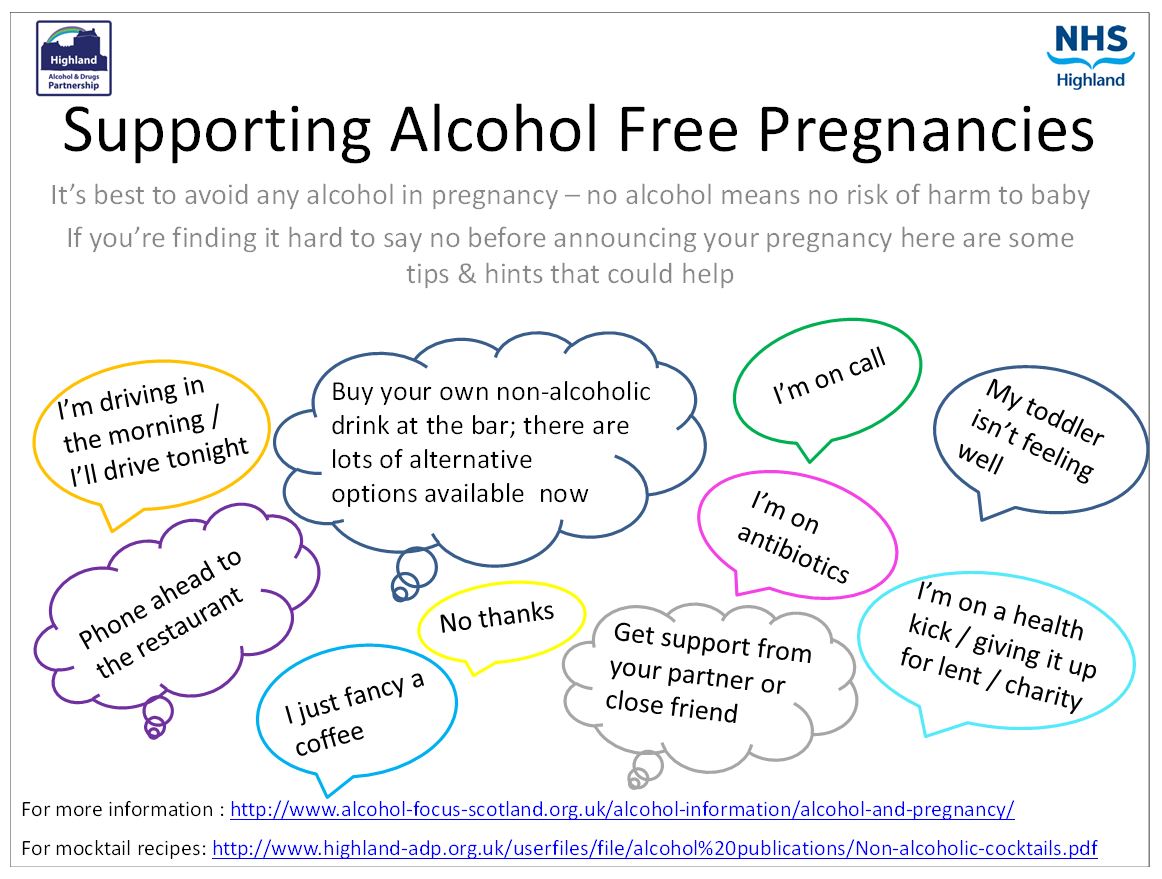
Partners, friends and family
If your loved one is pregnant, this one is for you. Mums to be told us that supportive family, friends and partners would be the best thing for them to remain alcohol free in pregnancy:
